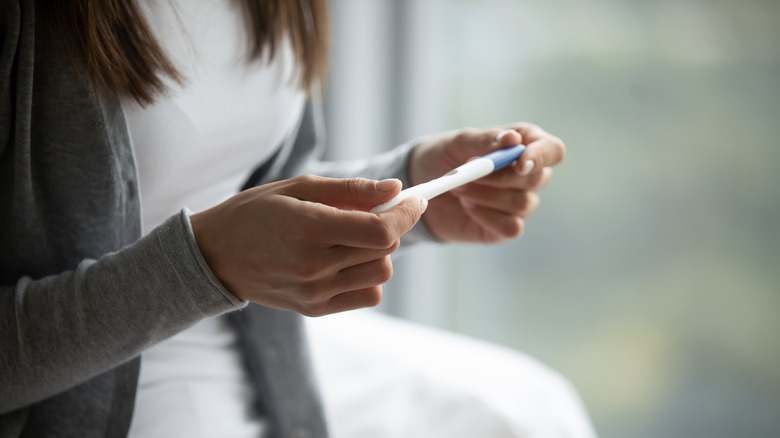Can You Experience Pregnancy Symptoms During The 1st Week?
When a woman suspects that she may be pregnant, there are certain tell-tale signs that can help confirm her suspicions. Every woman is different and one symptom may appear in one woman without appearing in another. However, the most common pregnancy symptoms include spotting and cramping, swollen and sore breasts, fatigue, nausea, and a missed period, according to WebMD.
Of course, many of these symptoms can also be signs of other medical issues and may not be a sign of early pregnancy. A more accurate way to test for pregnancy is to conduct an at-home pregnancy test, which can detect a hormone called hCG in your urine. While accuracy can vary, most home pregnancy tests, when used correctly, are between 97% to 99% accurate, explains Stanford Medicine.
But how early in your pregnancy can you experience symptoms? And can you detect them as soon as the first week of pregnancy?
Week 1 pregnancy symptoms depends on the woman
We need to first define when a woman is officially pregnant. Most medical professionals measure week 1 of pregnancy from the first day of the last menstrual cycle, according to Medical News Today. This can help a doctor figure out the estimated due date of the baby. However, in terms of pregnancy symptoms, week 1 refers to when a fertilized egg implants itself into the uterus.
Because of this timing, a missed period, assuming the woman has a regular cycle, is most often the earliest and most obvious sign of early pregnancy (via MedicalNewsToday). However, some women have claimed to feel pregnancy symptoms even before they notice their missed period, explains Cleveland Clinic. Some of these symptoms include frequent bathroom trips to urinate, fatigue, and morning sickness. These symptoms can also change depending on the woman. For example, some women may never feel morning sickness and others are running to the toilet every morning.
Unfortunately, because of the vagueness of these symptoms and how they overlap with other medical conditions, they should not be used as the determining factors in testing for pregnancy.


